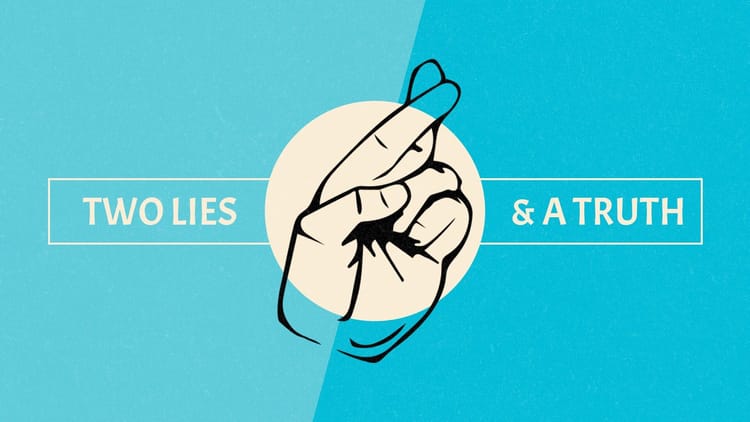Servanthood

Big Idea: True greatness, as Jesus teaches, lies in humbly serving others, prioritizing their needs, and following Christ’s example of selfless servanthood.
Select any ten chickens. Put them in a pen together, and spread a little chicken feed. In short order, you’ll see an amazing thing happen. These chickens, previously strangers, will form a hierarchy based on dominance. To use everyday language, they’ll form a pecking order. They will establish the chicken rankings from Number One to Number Ten through a series of skirmishes. Once the order is established, Chicken Number One can pick on any chicken without fear of reprisal. The rule is, you can pick on any other chicken who is lower than you on the pecking order. Pity poor Chicken Number Ten: pecked by nine other chickens, with no one to peck.
Take any ten people; put them in a room together, spread a little food around, and the same thing happens. We may not make noise, but we assess status and education, eventually determining who is Chicken Number One and who is Chicken Number Ten. Chicken Number Ones can freely express themselves and assert their dominance over others.
You see this in the church. It’s disturbing to me how easy it is to label people and decide, “This is somebody who’s important. This is somebody who is nice, but don’t worry about them.” We’re very quick to label over externals and to maintain this pecking order. You see this over and over in the Bible. Jesus talked about how certain people liked the important seats in the synagogue. Can't you see it? Somebody knows they’re Chicken Number One – look where they’re sitting!
Luke 11:43 says, "Woe to you Pharisees, because you love the most important seats in the synagogues and greetings in the marketplaces." Jesus talks about going to a wedding feast and taking the place of honor. Embarrassingly, however, the host comes and kicks you out of the seat because somebody more important has come along. His point? Sit yourself in the humble spots, so the host will come along and exalt you. He says, "For everyone who exalts himself will be humbled, and he who humbles himself will be exalted" (Luke 14:11).
Consider also the example of James and John.
Then James and John, the sons of Zebedee, came to him. "Teacher,” they said, “we want you to do for us whatever we ask." "What do you want me to do for you?" he asked. They replied, "Let one of us sit at your right and the other at your left in your glory." (Mark 10:35-37)
What a picture of how we act! How easy it is to condemn when we see this in other people – but how like us, isn’t it?
Somebody has wisely observed that pride is the oldest sin in the book; it was through pride that the serpent tempted Eve to eat the forbidden fruit in the Garden of Eden: “For God knows that when you eat of it your eyes will be opened, and you will be like God.” Our actions reveal our vanity, stubbornness, and desire to stay on top as Chicken Number One. A baby operates as if he or she were the only one alive, and if they don’t get their way, watch out! A baby is by nature selfish, and as adults we are to grow up so that we're not focused on ourselves all the time. But the reality is that we are, and Jesus tells us that this is unacceptable. Jesus tells us:
Jesus called them together and said, “You know that the rulers of the Gentiles lord it over them, and their high officials exercise authority over them. Not so with you. Instead, whoever wants to become great among you must be your servant, and whoever wants to be first must be your slave– just as the Son of Man did not come to be served, but to serve, and to give his life as a ransom for many.” (Matthew 20:25-28)
Being focused on ourselves has a number of problems. It makes our world very small. When we remain focused on ourselves, what a small world we live in! It ignores the interests and rights of others. Others don’t get their way; it’s all about what we want. It creates conflict, because others are looking out for themselves as well. Having a dozen selfish people in a room will naturally lead to conflict. Our self-focus prevents us from experiencing the joy of servanthood, which Jesus describes as finding ourselves by losing ourselves and gaining life through sacrifice. Ironically, if you want to be happy, stop focusing on being happy – focus on serving others. If you want to be blessed, simply be a blessing to others.
In one of the most moving scenes in the New Testament, the disciples gathered in a room together. Gathered at the Passover feast, the disciples were very aware that one of them needed to wash the others’ feet. The problem was that the only people who washed feet were the least. So there they sat, feet caked with dirt. It was such a sore point that they weren’t even going to talk about it. No one wanted to be considered the least. And then Jesus took a towel and basin and redefined greatness.
Now that I, your Lord and Teacher, have washed your feet, you also should wash one another’s feet. I have set you an example that you should do as I have done for you. (John 13:14-15)
This comes so unnaturally to us!
Three Disciplines
In talking about the spiritual disciplines, which are the pathway to spirituality, we’ve talked so far about celebration and slowing. We’re still going to talk about confession, secrecy, Scripture, prayer, and fasting. But tonight we’re going to talk about three disciplines under the umbrella of servanthood. They involve bringing three disciplines together.
Let's talk first about the discipline of submission.
This is the inward component of servanthood.
Do nothing out of selfish ambition or vain conceit, but in humility consider others better than yourselves. Each of you should look not only to your own interests, but also to the interests of others. (Philippians 2:3-4)
The phrase "in humility" holds significant importance. It provides the undergirding philosophy. You see, the Pecking Order is built on the belief that some of us are better than others. It’s the belief that our opinion or our status is more important than someone else’s.
Here’s the problem. Each of us, in the eyes of God, is the same. None of us, regardless of our titles and possessions, is worthy of more than hell. We must recognize that we are all equal before God and, in humility, strive to treat others as better than ourselves, just as Jesus did. Can you imagine what would happen if everyone followed this? What if company presidents showed their janitors the respect they deserve? If husbands stopped viewing themselves as “Chicken Number One” with the right to peck away at his wife? If every husband declared, "My wife is a Very Important Person, and I will honor, respect, and encourage her," it would make a positive impact. If the wife said the same thing about the husband? Can you imagine what would happen in the church?
Servanthood means that we evaluate what takes place not by our own preferences, but the preferences of others. It’s interesting that Paul wrote this to a very mixed church. Philippi was a cosmopolitan city, and the church matched this diversity. There were people of different nationalities and social backgrounds in the church. With so many backgrounds in the church, unity must have been difficult to maintain. Paul emphasized the importance of guarding against selfishness, prejudice, and jealousy to prevent conflicts. Showing genuine interest in others is a positive step forward in maintaining unity among believers.
Submission means that we give up the right to be in charge and impose our own desires. The Bible emphasizes that dominant individuals, such as leaders and those in power, should practice submission. 1 Peter 3:8 says, "Finally, all of you, live in harmony with one another; be sympathetic, love as brothers, be compassionate and humble."
In the New Testament, slaves are told to be submissive to their masters. Why should they be told that? They didn’t have a choice! It's possible to appear submissive while feeling rebellious inside. The New Testament goes to the heart of the matter. Once again, wives were told to be submissive to their husbands. When this was written, they didn’t have a choice! But, Paul and Peter say, the attitude is what’s important.
What is truly amazing, and often overlooked today, is what the Bible teaches about those who hold greater power in relationships. Fathers, don’t frustrate your children. Masters, treat your slaves the same way. Husbands, love your wives. What we sometimes forget is how much submission this requires of the dominant partner in that cultural setting! “If anything,” one person writes, “the sting of the teaching falls upon the dominant partner.”
Friends, it is crucial that we become servants by submitting. We need to live the words of Martin Luther, who said, “A Christian is a perfectly free lord of all, subject to none. A Christian is a perfectly dutiful servant of all, subject to all.” To become a servant, start by submitting to your spouse, fellow church members with different musical tastes, and those with whom you often disagree. Ironically, feeling less pressure to prove yourself to others makes it easier to find inner peace. Submission is a key biblical teaching that applies to all our relationships. It allows us to follow the example of Christ, who submitted himself all the way to the cross. This is the most important step.
The second component to servanthood is the discipline of secrecy.
We’re going to talk about this in a few weeks, so we won’t dwell on this tonight. One of the hardest things to do is to serve in obscurity, with nobody noticing. Richard Foster writes:
Nothing disciplines the inordinate desires of the flesh like service, and nothing transforms the desires of the flesh like serving in hiddenness. The flesh whines against service but screams against hidden service. It strains and pulls for honor and recognition.
Over and over, Scripture warns us against self-promotion.
Proverbs 27:2 says, "Let another praise you, and not your own mouth; someone else, and not your own lips." Listen to this story that Jesus told:
Two men went to the temple. "Two men went up to the temple to pray, one a Pharisee and the other a tax collector. The Pharisee prayed, "God, I thank you that I am not like other men—robbers, evildoers, adulterers, or this tax collector." I fast twice a week and give a tenth of all I get." But the tax collector stood at a distance. He would not even look up to heaven, but beat his breast and said, "God, have mercy on me, a sinner." I tell you that this man, rather than the other, went home justified before God. For everyone who exalts himself will be humbled, and he who humbles himself will be exalted" (Luke 18:10-14).
The moral of the story is simple: don’t be self-righteous. Don't boast about yourself! Don’t do good deeds to be recognized, because if you do, you won’t be a servant. One of the best ways to die to yourself is to be willing to serve, unnoticed and unappreciated, in obscurity. Seek a place where no one else is helping, where you may not receive recognition or praise, and serve there.
Let me conclude tonight by talking briefly about what is classically called the discipline of servanthood.
When we read of the discipline of servanthood, people usually have a few things in mind. The first is the ministry of the mundane. Like Dorcas, we can find ways to make “coats and garments for the widows.” As Jesus said, we can help others by offering them cups of cold water in his name, putting aside our own interests to serve them.
Richard Foster, in his book Celebration of Discipline: The Path to Spiritual Growth, shares a true story. During the frantic, final throes of writing his doctrinal dissertation, he received a call from a friend. His wife had taken the car, and he wondered if Richard Foster could take him on a number of errands. Trapped, he consented, inwardly cursing his luck. On the way out, he grabbed a book by Dietrich Bonhoeffer called Life Together, thinking that he might have a chance to read it. At each errand, he inwardly fumed at the loss of time. Finally, at the supermarket, he waved his friend on, saying that he would wait in his car and read. He opened his book to bookmark, and here is what he read:
The second service that one should perform in the Christian community is active helpfulness. This means, initially, simple assistance in trifling, external matters. There is a multitude of these things wherever people live together. Nobody is too good for the meanest service. One who worries about the loss of time that such petty, outward acts of helpfulness entail is usually taking the importance of his own career too solemnly.
Ouch! One of the best ways we can become servants is to see a need and fill it. Drive someone to the bank. Do their laundry. It’s the ministry of the mundane, and if you’re too busy to engage in it, you’re too busy!
The second is the ministry of being interrupted. Sometimes our work must be interrupted for tasks that are not on our agenda. Sometimes we must live with the “latch off the door.” We need to make ourselves available, from time to time, to talk or pray with troubled people – people whom we won’t be able to cure and who won’t contribute to our own success. John Ortberg has suggested that occasionally you set aside a day to be “a day of secret service.” In it you are simply available to others and have no agenda of your own. The goal of that day is that you are 100% available; it is impossible for you to be interrupted. The only goal is to serve.
There are other things – the ministry of embracing your limitations, the ministry of holding your tongue. But let me touch on one more – the ministry of bearing one another’s burdens. Galatians 6:2 says, "Carry each other’s burdens, and in this way you will fulfill the law of Christ." The ministry of sharing burdens means making others' problems our own. We should recognize others' needs and use our resources to help meet them.
The best example of this is what happens in a healthy family. When a problem occurs, a parent or child takes responsibility and allocates resources to address it. I see this in the old Mennonite communities – when a barn is destroyed, it’s not the one family’s problem. The entire community drops whatever it was doing and helps to raise the barn. This is a model for us to follow.
So submit to one another – put their interests ahead of your own. Practice secrecy – don’t blow your own horn. And serve in whatever way possible. I think one of the greatest modern examples of these disciplines was Henri Nouwen. He was one of the brilliant theological minds of our generation, a tenured professor at Yale. But listen to what he said at the height of his success: “I felt I needed something else because my spiritual life was not deep. I’m just a fragile person, and I knew that I wasn’t rooted deeply enough in Christ. I wanted something more.”
This brilliant theologian moved to Richmond Hill, Ontario, and became a pastor for a group of mentally disabled children. Many believed he was wasting his life by changing diapers for disabled kids, but Nouwen knew he was in the right place. And he stayed there until he died of a heart attack a couple of years ago at age 65.
As Matthew 25:40 says, "The King will reply, ‘I tell you the truth, whatever you did for one of the least of these brothers of mine, you did for me.’" People wondered why a brilliant man would give up his career to help change diapers of mentally disabled children. He said it was because in giving up everything to become a servant, he actually found satisfaction and peace.
Not so with you. Instead, whoever wants to become great among you must be your servant, and whoever wants to be first must be slave of all. (Mark 10:43-44)





